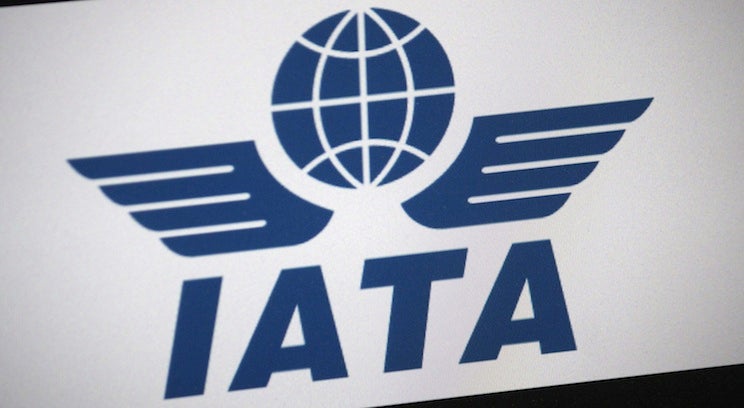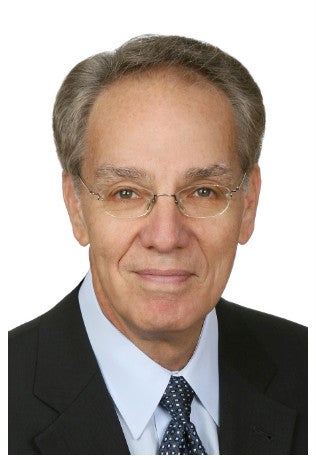
Jeffrey Shane is the general counsel of the International Air Transport Association (IATA) in Montreal, the trade association for the world’s airlines, which represents 260 airlines and 83 percent of the world’s air traffic. His international responsibilities belie his Brooklyn origins. Shane grew up two blocks from Ebbets Field, the home of the Brooklyn Dodgers from 1913 to 1957. He recalls watching Jackie Robinson steal bases, and on warm summer evenings he could hear the PA system through his open bedroom window, announcing the batting order.

Shane had dabbled with the idea of a journalism career, but had never thought of becoming a lawyer. Instead, while pursuing his undergraduate degree at Princeton, he was drawn to engineering, economics, and philosophy. But he knew his strengths then — that he was a logical thinker, a natural problem solver, and a good writer. Law, he thought, might be a good fit.
So he went to Columbia Law School.
“By the time I graduated college, I didn’t really have a trade,” Shane says. “I feel now as though I just went to law school by default; there had never been any lawyers in my family and law school really didn’t interest me very much. It wasn’t my happiest time. But I’d borrowed a lot of money to go, so I just stayed with it. Fortunately, thanks to a great professor, I discovered a particular interest in economic regulation. After that, I found I really enjoyed the work.”
Shane moved to Washington, DC and became a trial lawyer with the Federal Power Commission, a government agency that regulated the transmission of electricity and natural gas. The agency was later absorbed by the US Department of Energy.
He enjoyed the work, and after a couple years, a colleague told him that a new cabinet department — the United States Department of Transportation (USDOT) — was looking for lawyers who knew their way around regulatory agencies. Shane was hired as a litigator, and ended up representing USDOT in regulatory proceedings that involved aviation, trucking, and shipping, as well as representing the agency in court.
“The new USDOT was trying to move US transportation policy in a different direction — from a heavy emphasis on economic regulation to a greater reliance on market forces — and they were doing it through the use of law,” Shane says. “I found myself representing DOT during a time of great ferment, and I learned a lot about the regulation of transportation in the bargain. It was a fantastic experience.”
He also brought an artistic touch to USDOT, guessing correctly there were probably a lot of closet artists within the organization. He launched a staff art gallery, which was an immediate hit, and provided the USDOT staff an outlet to showcase their work. Although Shane left the department eight years ago, the gallery — named after him — is still operating today.
He devoted more than 20 years of his career to DOT in five separate capacities, finishing his government career with a six-year stint as under secretary of transportation for policy. He also spent four years at the US Department of State serving as America’s chief aviation negotiator, and is widely credited with leading the US government’s adoption of an “Open Skies” policy, which fostered more rapid growth and robust competition among international air services.
When not working for the US government, Shane practiced law in Washington, concentrating primarily on aviation. Immediately prior to joining IATA in 2013, Shane was a partner at the Washington, DC office of Hogan Lovells, where he worked for seven years. He spent a total of 14 years in private practice, and taught international transportation law at Georgetown University Law School. In 2007, he was elected president of the triennial Assembly of the UN International Civil Aviation Organization, the first American to serve in this role since 1959.
Now in Montreal after more than four decades in Washington, DC, Shane is IATA’s chief legal officer. He is in charge of a 17-lawyer in- house team with offices in Montreal, Geneva, and Singapore. The department is responsible for providing legal support to the organization’s nearly 40 lines of business, as well as its advocacy, safety, and financial services teams.
He has paid particular attention to management issues, focusing most importantly on the consolidation of IATA’s externally provided legal services. IATA has been nominated for an ACC award in recognition of this transformation. “I discovered that we were spending CAD$6 to CAD$7 million yearly on legal fees around the world but had very little control over the quality or cost of the legal services we were buying,” Shane says. “So we have spent the past three years consolidating all of those legal services — formerly provided by as many as 130 firms — into two law firm consortia. One covers this hemisphere — the Americas — and the other covers all of IATA’s other geographic regions. In return for being our go-to lawyers, they have each agreed to do the work for ‘blended’ hourly rates that are significantly below the market. Procedures have been established that for the first time enable my department to decide when to retain outside counsel, define the scope of the retention, and evaluate the quality of the services provided. It’s taken a lot of time, but it’s also made a big difference.”
Striving for balance, Shane also took on the challenge of evening out a legal department that was too top-heavy.
“I felt that the department badly needed a more balanced demographic and a more transparent career path. One of the senior lawyers moved to a different department at IATA shortly after my arrival and I decided to replace him with a more junior lawyer,” Shane says. “Then we worked with our HR group to clarify everyone’s job description and to create more levels within the office. As a result of that effort, we now have five levels of seniority and it works a lot better.”
Shane is a strong champion of professional development, and feels a responsibility to provide a work environment that is professionally enriching and satisfying. He is also working to ensure that his lawyers have the skill and flexibility to handle whatever pops up.
“I would like to ensure that we have the bench depth to handle whatever comes through the door, even if a particular subject matter expert is on vacation or otherwise unavailable. We’ve launched a program just this year to enhance our strength in that regard,” Shane says. “I’m lucky to have a team that’s already very strong, and I’m pleased to say that they have signed on to this initiative enthusiastically.”
Despite a career that has been richly rewarding and varied, Shane feels a lot of it was just dumb luck. Law school is not a very good indicator of what the real world will be like, he says, and it’s best to not agonize too much over that first job, or be too picky. Find something that looks like it may be a satisfying way to spend your time as a professional, and go from there.
“Some people are very lucky and know exactly the type of law they want to do from the start, but it’s rare,” Shane says. “For the rest of us, we just have to see what works. And no matter what job you have — impress the hell out of your boss. That’s what will open up the next door.”
As a confirmed city guy, Shane says Montreal is like a little slice of Europe, and he, his wife, and two daughters enjoy the city immensely. He and his family love Montreal’s bikeability, easy city access, its mighty river, and its many parks.
“It’s great that our children have the opportunity to live and attend school outside of the United States,” he says, noting that his daughters are already fluent French speakers. “And it takes me 12, maybe 15, minutes to get to the office in the morning. I’m okay with that.”




